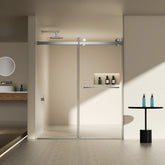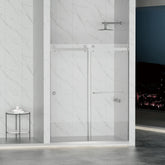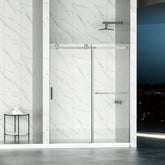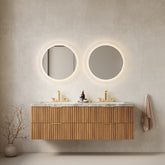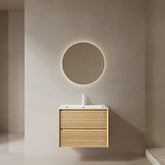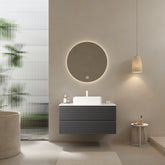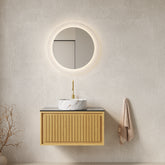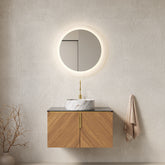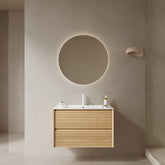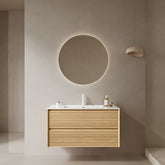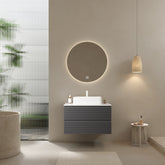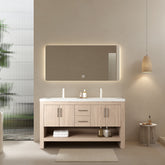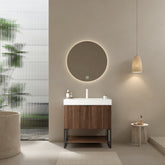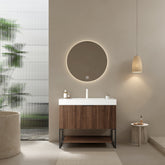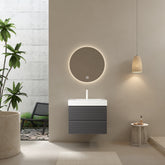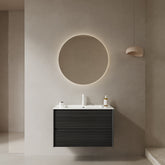Frameless vs. Framed Shower Doors: Which Is Better for You?
1. Introduction
When I first started planning my bathroom remodel, I never imagined that something as simple as choosing a shower door could make such a big difference. But the more I researched, the more I realized that the right choice between frameless and framed shower doors can dramatically impact both the look and functionality of the entire space.
On one hand, frameless shower doors offer a sleek, modern aesthetic that gives the bathroom a spacious, spa-like feel. On the other, framed shower doors provide a sturdy, classic option that’s often more budget-friendly and easier to install. Each has its pros and cons, and figuring out which one is better really depends on your priorities—whether that’s style, cost, durability, or ease of maintenance.
In this article, I’ll walk you through everything I learned about frameless vs. framed shower doors. My goal is simple: to help you make an informed decision that suits your bathroom design and lifestyle needs. Whether you're renovating, building, or just exploring ideas, this comparison will help you choose the best shower door type for your home.
2. What Are Framed Shower Doors?
When I first came across framed shower doors, I immediately noticed how sturdy and structured they looked. These doors are built with a full metal frame—usually aluminum or stainless steel—that surrounds all edges of the glass panel. This frame provides extra support, which means the glass itself doesn’t need to be as thick as that used in frameless designs.
In terms of appearance, framed shower doors tend to have a more traditional, enclosed look. The frame clearly outlines the door and often includes a matching metal track along the top and bottom. These frames come in various finishes—like chrome, brushed nickel, or matte black—so they can still fit in with a wide range of bathroom styles.
Framed doors are typically available in both sliding and hinged configurations. Because of their structural integrity, they’re especially practical in family homes or high-traffic bathrooms where durability matters. They’re also more affordable and easier to install compared to frameless shower doors, which makes them a popular choice for budget-conscious renovations or large-scale developments.
Overall, I found that framed shower doors are a solid, dependable option. They may not deliver the same minimal, open look as their frameless counterparts, but they more than make up for it with reliability and ease of maintenance.
3. What Are Frameless Shower Doors?
After looking at several bathroom showrooms and design magazines, I quickly realized why frameless shower doors are so popular—they look incredibly modern and elegant. Unlike framed options, these doors are made with thick, tempered glass panels that don’t require a full metal frame for support. Instead, they’re held in place with discreet hardware like hinges, brackets, and clips, giving the entire enclosure a clean, open appearance.
One of the standout features of frameless doors is the glass thickness, usually ranging from 3/8 inch to 1/2 inch. This extra thickness not only adds strength but also enhances the luxurious, high-end feel. The minimal use of metal hardware makes the glass appear to float, which can make even a small bathroom feel more spacious and airy.
Frameless shower doors are especially popular in contemporary or spa-inspired bathrooms where simplicity and visual flow are key design elements. I’ve seen them used in everything from upscale residential homes to boutique hotels. They’re also a top choice among interior designers aiming to achieve a seamless, minimalist look.
While frameless doors do require a higher upfront investment and more precise installation, I found the aesthetic payoff to be worth it. For anyone looking to create a sleek, modern bathroom design, frameless shower doors are hard to beat.
4. Visual Comparison: Aesthetic Differences
When I compared frameless vs. framed shower doors side by side, the difference in style was instantly noticeable. Frameless shower doors have a modern, almost invisible look that emphasizes clean lines and open space. They blend seamlessly into the background, allowing other design elements—like tile work or lighting—to take center stage. If you're aiming for a minimalist or spa-like bathroom, frameless is definitely the way to go.
On the other hand, framed shower doors have a more traditional appearance. The visible metal borders give the door a defined, structured look. This makes them a better match for bathrooms with classic or transitional design themes. The frame itself can actually become a design feature, especially if you choose a bold finish like matte black or brushed brass to complement your fixtures.
I found that frameless designs are more compatible with modern or contemporary bathrooms, while framed doors work well in settings where symmetry and detail are important. Your choice really comes down to the atmosphere you want to create. Do you prefer sleek and open, or solid and defined? Both have visual strengths—it just depends on what fits your personal style and your bathroom's overall design.
5. Durability and Maintenance
When I started weighing the pros and cons of frameless vs. framed shower doors, durability and maintenance quickly became major factors in my decision-making process. Both types are built to last, but they each have unique strengths—and some potential drawbacks—when it comes to long-term performance.
From what I’ve learned, framed shower doors tend to be slightly more durable over time because of their reinforced metal structure. The frame helps protect the thinner glass and adds overall stability, especially in busy households where the shower gets frequent use. They’re also less prone to shifting or sagging since the entire panel is tightly secured within the frame.
Frameless shower doors, on the other hand, rely on thicker tempered glass to compensate for the lack of a metal frame. While this glass is extremely strong, the door hinges and brackets must be installed with precision to avoid long-term stress or misalignment. If installed correctly, they’re just as durable—but poor installation can lead to issues down the line.
In terms of cleaning and upkeep, I personally found frameless doors easier to manage. With fewer metal parts and no bottom track, there are fewer spots for soap scum or mildew to build up. I just use a squeegee after each shower to keep the glass sparkling. Framed doors, while still manageable, can collect grime in the metal tracks and corners, requiring a bit more elbow grease during deep cleaning.
One concern I had was water leakage. Frameless shower doors are more vulnerable in this area due to their minimal seals, especially if your shower isn’t perfectly level. Framed shower doors are generally more watertight, thanks to their overlapping edges and full enclosure design. If splash control is important—like in a family or shared bathroom—a framed option might give you more peace of mind.
Overall, both styles offer solid durability, but their maintenance needs and water performance differ. It really depends on your priorities: low-maintenance elegance or tried-and-true functionality.
6. Cost Comparison
As I narrowed down my choices between frameless and framed shower doors, cost became one of the biggest deciding factors. It’s easy to be drawn to the sleek look of frameless designs, but I had to take a step back and consider the full picture—upfront price, installation costs, and long-term value.
Let’s start with the basics: framed shower doors are generally much more budget-friendly. The glass is thinner, the structure is simpler, and the installation is quicker and easier. If you're remodeling on a tight budget or outfitting multiple bathrooms, framed doors can save you a significant amount of money without sacrificing functionality.
Frameless shower doors, however, come with a higher price tag. The thicker, tempered glass alone is more expensive, and the installation process is more involved. Because there’s no frame to guide or stabilize the panels, everything has to be perfectly measured and aligned, which often means hiring experienced professionals. Labor costs can add up quickly.
But here’s what I had to ask myself: is it worth the investment? For many homeowners, the answer is yes. Frameless doors can increase the perceived value of a bathroom, especially in modern homes or luxury remodels. They tend to age better aesthetically and offer a timeless, upscale look that could pay off if you plan to sell your home down the road.
In the long run, I found that frameless shower doors offer excellent value if you're aiming for a high-end feel and are willing to invest a little more upfront. On the flip side, framed doors are a smart, practical choice if you want a quality product that fits your budget and gets the job done.
7. Pros and Cons Summary
After spending a lot of time comparing frameless vs. framed shower doors, I found it helpful to break things down into a simple side-by-side comparison. Here’s a quick look at the pros and cons of each option based on my research and personal experience:
| Feature | Frameless | Framed |
|---|---|---|
| Appearance | Sleek, modern look | Classic, defined edges |
| Installation | More complex & expensive | Easier, more budget-friendly |
| Maintenance | Requires regular care | Easier to maintain |
| Cost | Higher | Lower |
This comparison really helped me weigh the options. If you’re aiming for a sleek, modern aesthetic and don’t mind the extra investment, frameless shower doors are a fantastic choice. But if you’re focused on durability, ease of installation, and staying within budget, framed shower doors might be the better fit.
8. How to Choose the Right One for You
When I was deciding between frameless and framed shower doors, I realized it wasn’t just about looks—it came down to how each option would fit my lifestyle, space, and long-term goals. Here’s how I approached the decision, and what I’d recommend you consider too:
Lifestyle Needs
If you have young kids, elderly family members, or anyone in your home who needs extra stability, a framed shower door might be the safer and more practical option. The added frame offers support and structure, which can be helpful for heavy daily use. On the other hand, frameless shower doors are great if your bathroom is used mostly by adults or if you want a spa-like, open-feeling environment with easy entry access.
Budget Considerations
Budget played a huge role in my decision. Framed shower doors are clearly the more affordable option, both in terms of upfront cost and installation. If you're working within a tight renovation budget, they offer excellent value. That said, if you're willing to spend a bit more for a modern look and long-term appeal, frameless shower doors may be worth the extra investment.
Bathroom Size and Style
My bathroom isn’t very large, so I was drawn to the way frameless doors create the illusion of more space. The absence of bulky frames and tracks made everything feel cleaner and more open. However, if your bathroom design leans more traditional or transitional, framed shower doors can enhance that look with their defined edges and available finishes.
Resale and Value Impact
While I’m not planning to sell anytime soon, I still thought about future resale value. A bathroom with a sleek frameless shower door can make a home feel more modern and appealing to buyers, especially in today’s competitive market. If increasing perceived value is part of your remodeling goal, frameless might give you an edge. Still, a well-installed framed door won’t hurt your resale either—it’s just a different style preference.
Ultimately, the “better” option depends on your priorities. For me, it came down to balancing style with function, and choosing what best fit the way I actually live and use the space every day.
9. Expert Tip: Matching Shower Doors with Bathroom Design
One key lesson I learned while choosing between frameless and framed shower doors is that matching the door style with your overall bathroom design can make a huge difference. Here’s a little expert advice based on what I discovered and experienced firsthand.
When Frameless Fits Best
Frameless shower doors are perfect for bathrooms that emphasize a clean, modern, or minimalist look. If your space features sleek tiles, open layouts, and contemporary fixtures, frameless doors enhance that feeling of openness and sophistication. They also work wonderfully in smaller bathrooms because their transparency helps the space feel less confined.
When Framed Suits Better
On the other hand, framed shower doors work best in bathrooms with a more traditional, vintage, or industrial style. The visible metal frame adds structure and can be a decorative element itself, especially if you choose hardware finishes like matte black, oil-rubbed bronze, or brushed nickel. If your bathroom has detailed cabinetry or classic fixtures, framed doors can complement that aesthetic beautifully.
The Role of Hardware Finish and Handle Style
Don’t overlook the impact of hardware finishes and handle styles when selecting your shower doors. I found that coordinating these details with other bathroom elements—like faucets, towel bars, and lighting—creates a cohesive, polished look. For example, a sleek chrome handle on a frameless door can amplify a modern vibe, while a rustic bronze handle on a framed door can enhance a cozy, traditional feel.
In my experience, thinking about these subtle design details helped me choose a shower door that not only functions well but also elevates the entire bathroom’s style.
10. Conclusion
After diving deep into the comparison between frameless and framed shower doors, I’ve come to appreciate the strengths of both options. Frameless doors offer a clean, modern aesthetic with a minimalistic feel, perfect for contemporary bathrooms and those who love sleek, open designs. Framed doors, on the other hand, bring structure, affordability, and classic style, making them ideal for traditional spaces or anyone working within a tighter budget.
When making your decision, it really comes down to your priorities. If you value visual space, a modern vibe, and don’t mind spending a little more, frameless shower doors are a great investment. But if you’re looking for something sturdy, practical, and budget-conscious, framed shower doors may be the better choice.
Personally, I found that understanding my lifestyle, bathroom layout, and design goals made the decision much easier. Still, if you’re unsure, I highly recommend reaching out to a trusted professional or shower door supplier. They can assess your space, offer tailored advice, and help ensure that whichever option you choose fits your bathroom perfectly—both functionally and aesthetically.
In the end, whether you go with a framed or frameless shower door, the right choice is the one that complements your home, fits your budget, and makes you feel good every time you step into your bathroom.
Featured Products
60" Bathroom Vanity with Sink, Wall-Mounted Bathroom Storage Cabinet with Drawers
- 2,075.00USD
- 2,075.00USD
- Unit price
- / per
30" Wall-Mounted Bathroom Vanity with Ceramic Sink
- 691.00USD
- 691.00USD
- Unit price
- / per
24" Wall-Mounted Bathroom Vanity with Ceramic Sink
- 566.00USD
- 566.00USD
- Unit price
- / per
36" Floating Bathroom Vanity with Vessel Sink
- 783.00USD
- 783.00USD
- Unit price
- / per
30" Wall-Mounted Bathroom Vanity with Sink
- 691.00USD
- 691.00USD
- Unit price
- / per
30" Modern Wall Mounted Bathroom Vanity with Sink
- 585.00USD
- 585.00USD
- Unit price
- / per
30" Floating Bathroom Vanity with Sink
- 628.00USD
- 628.00USD
- Unit price
- / per
36" Wall-Mounted Bathroom Vanity with Ceramic Sink
- 726.00USD
- 726.00USD
- Unit price
- / per
30" Bathroom Vanity with Vessel Sink, Gray Color
- 720.00USD
- 720.00USD
- Unit price
- / per
36" Modern Bathroom Vanity, Wall-Mounted, Natural Walnut Woodgrain Color
- 770.00USD
- 770.00USD
- Unit price
- / per
60" Bathroom Vanity with Sinks, Freestanding Oak Woodgrain Color
- 1,513.00USD
- 1,513.00USD
- Unit price
- / per
30" Freestanding Bathroom Vanity with Sink, Retro Walnut Woodgrain Color
- 865.00USD
- 865.00USD
- Unit price
- / per
36" Freestanding Bathroom Vanity with Sink, Retro Walnut Woodgrain Color
- 920.00USD
- 920.00USD
- Unit price
- / per
24" Bathroom Vanity with Undermount Sink, Gray Color
- 690.00USD
- 690.00USD
- Unit price
- / per
36" Wall-Mounted Bathroom Vanity with Ceramic Sink, Dark Oak Woodgrain Color
- 770.00USD
- 770.00USD
- Unit price
- / per
